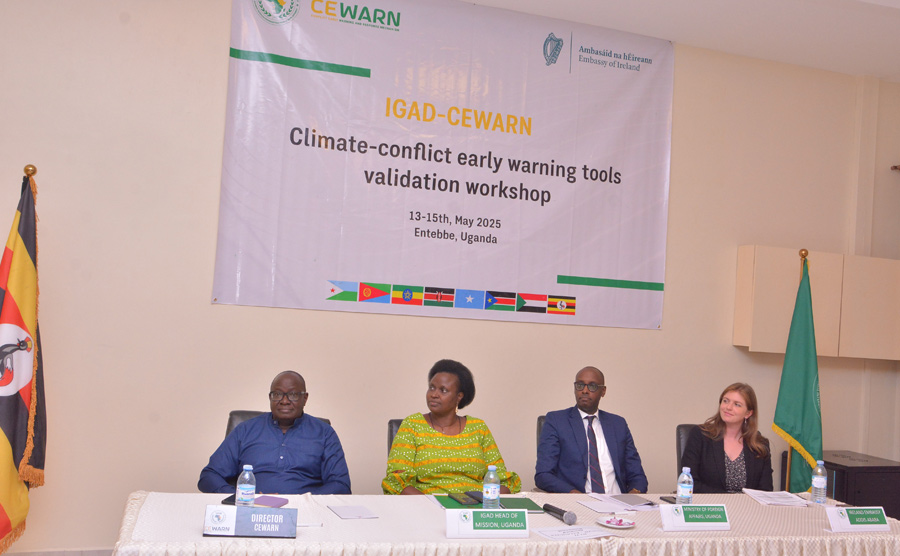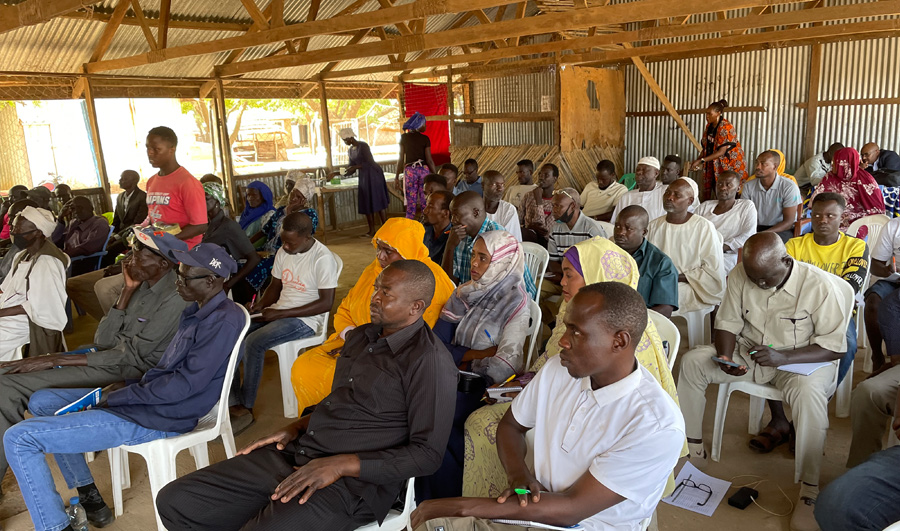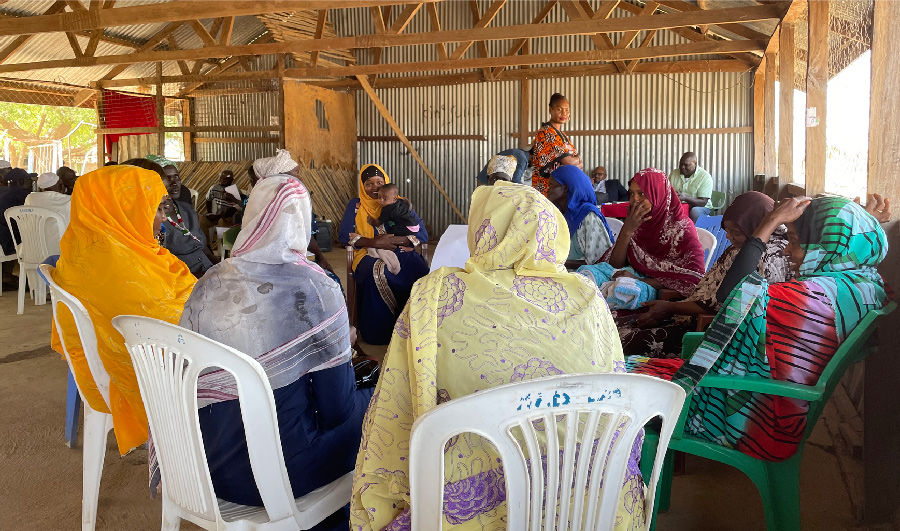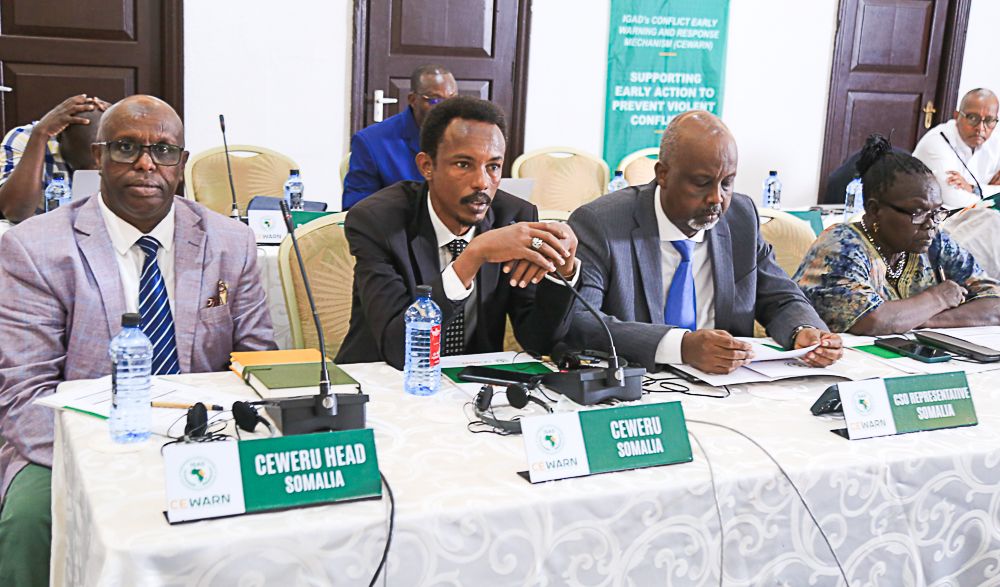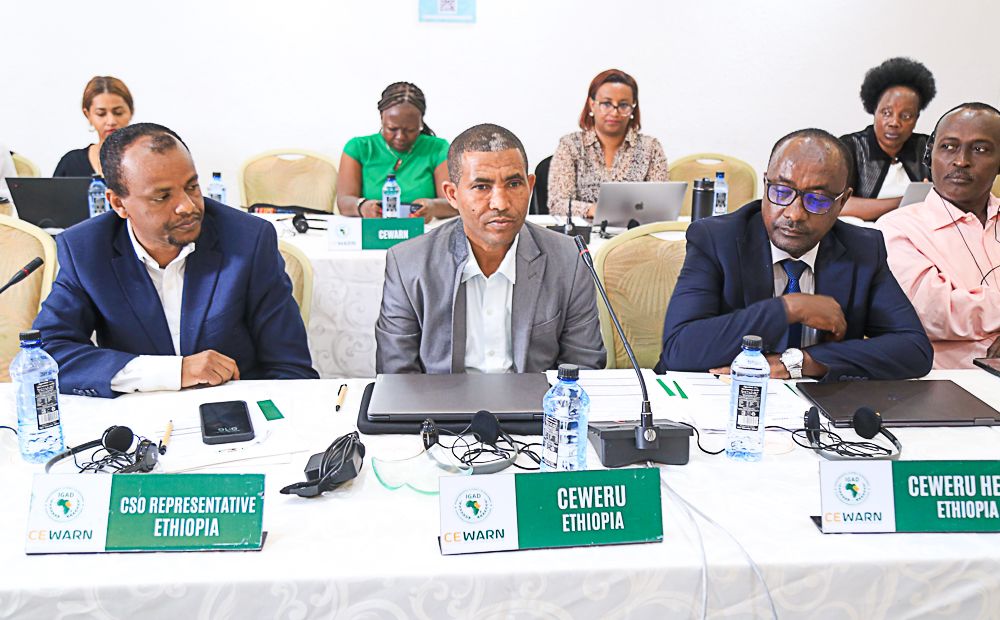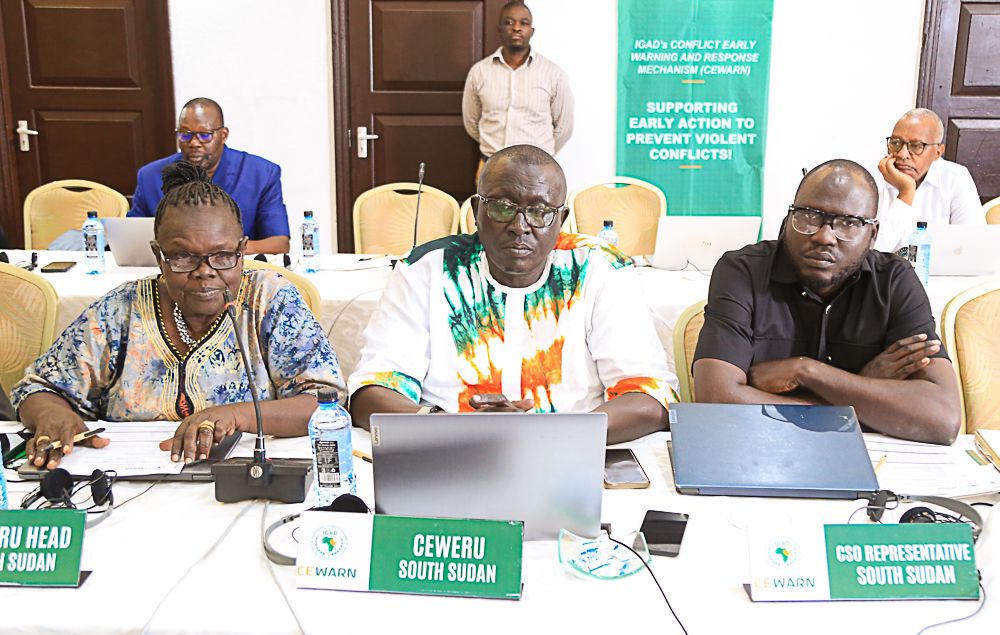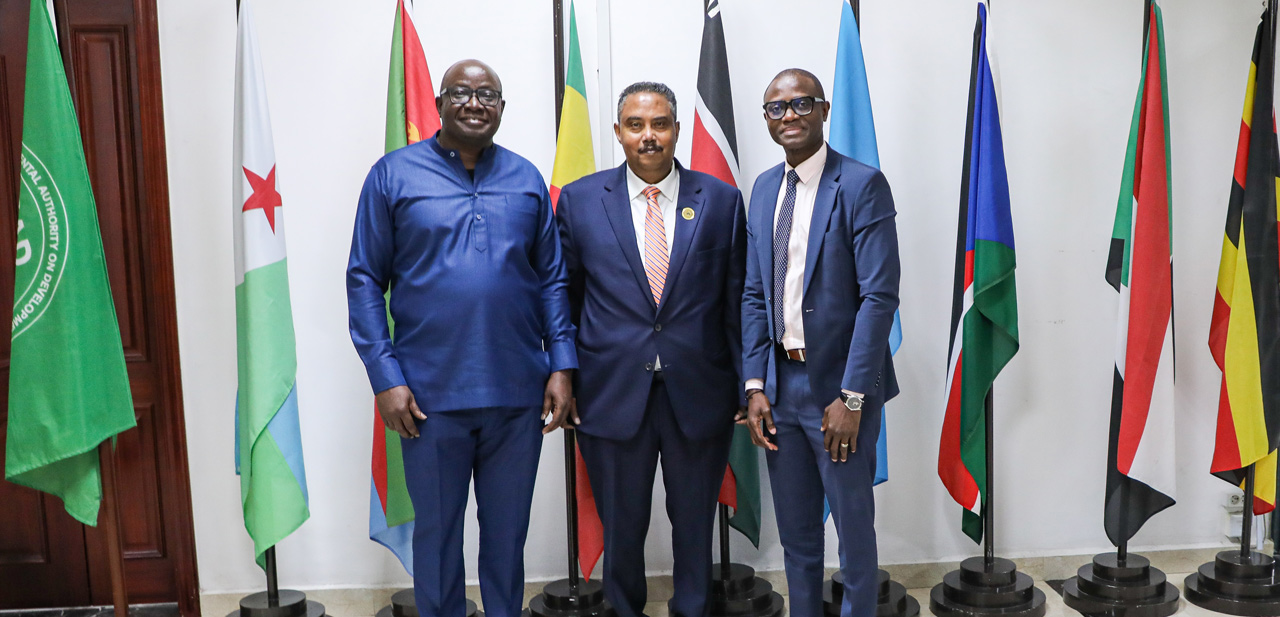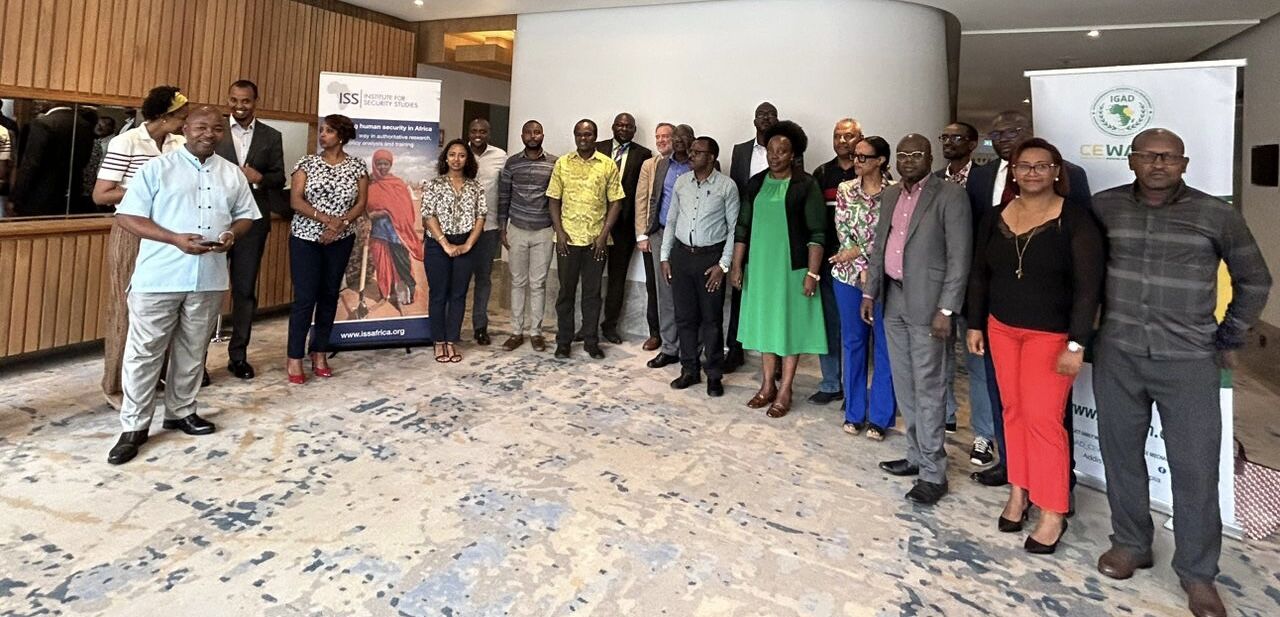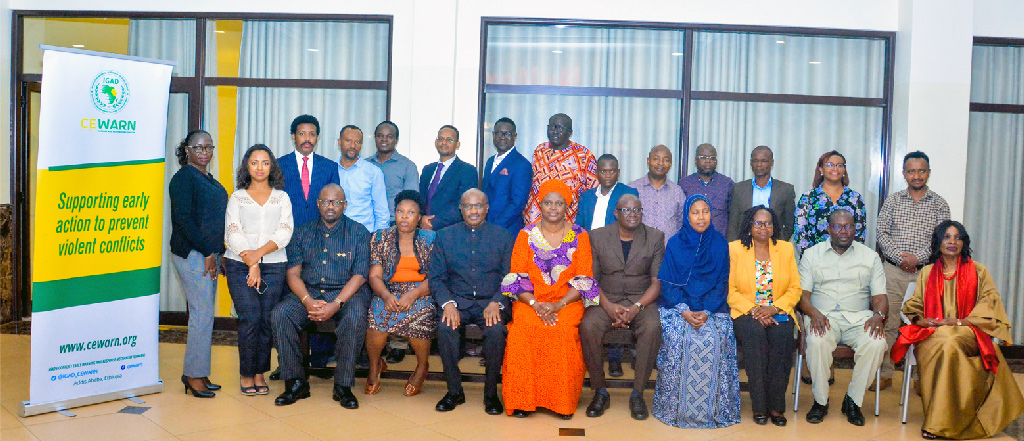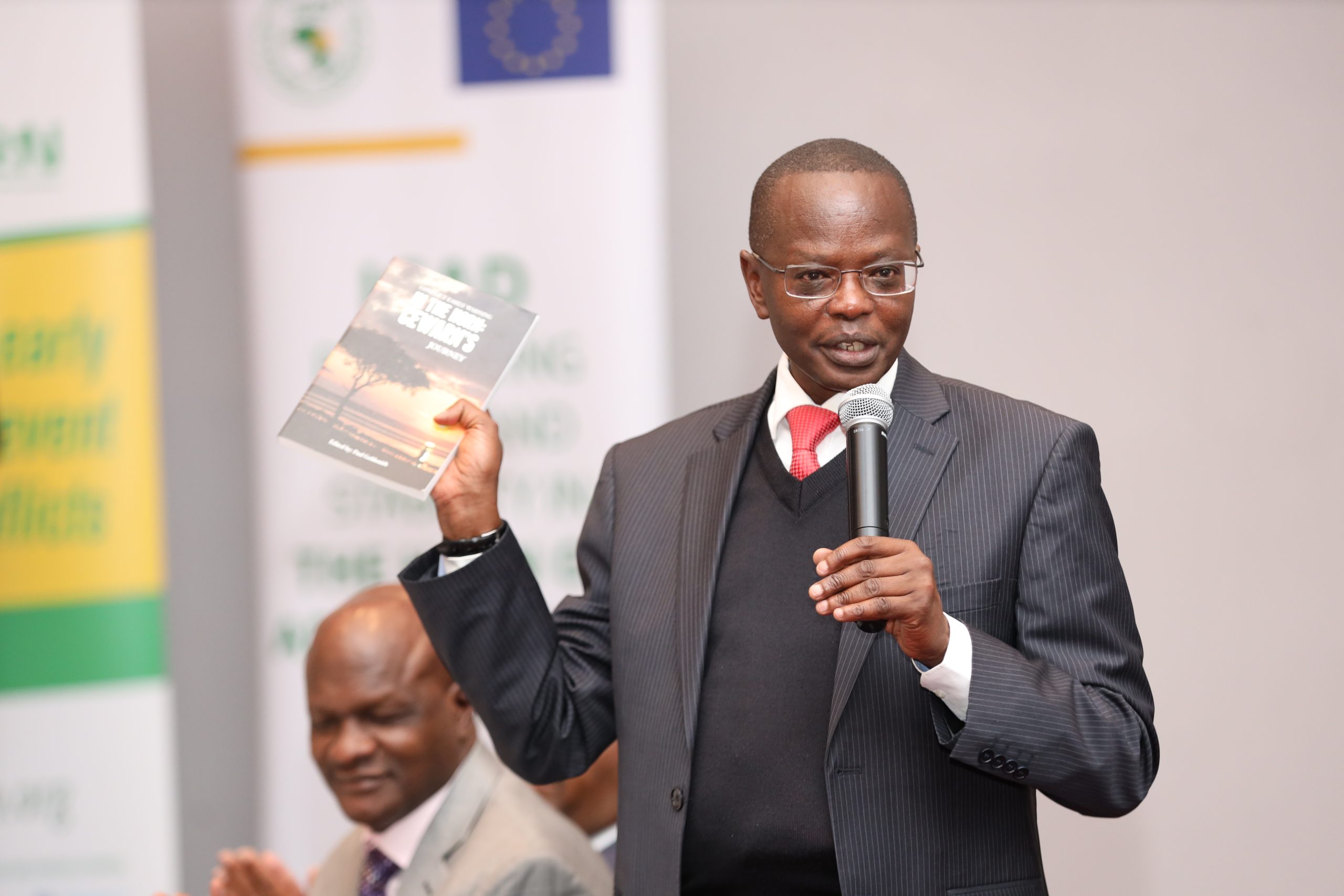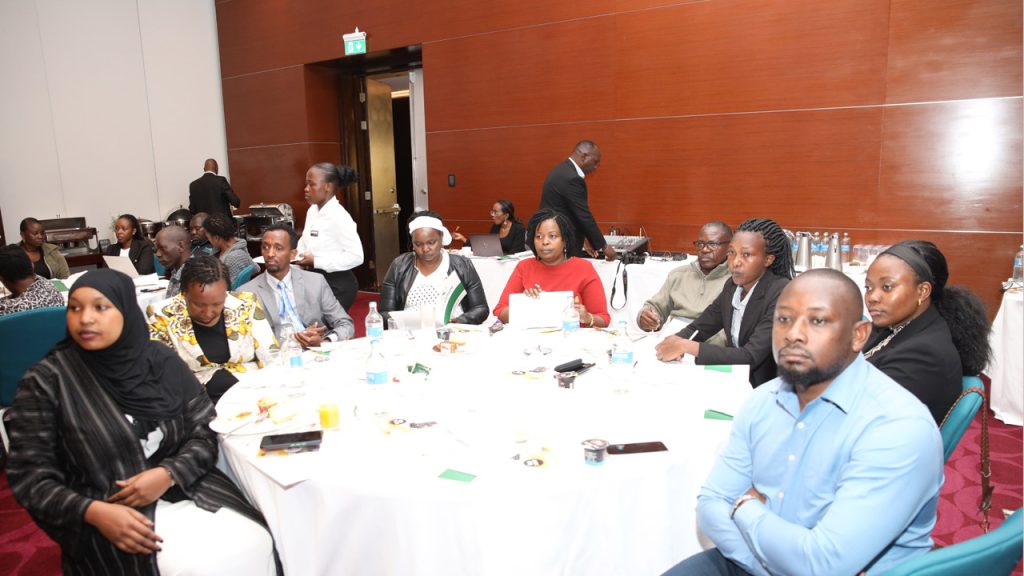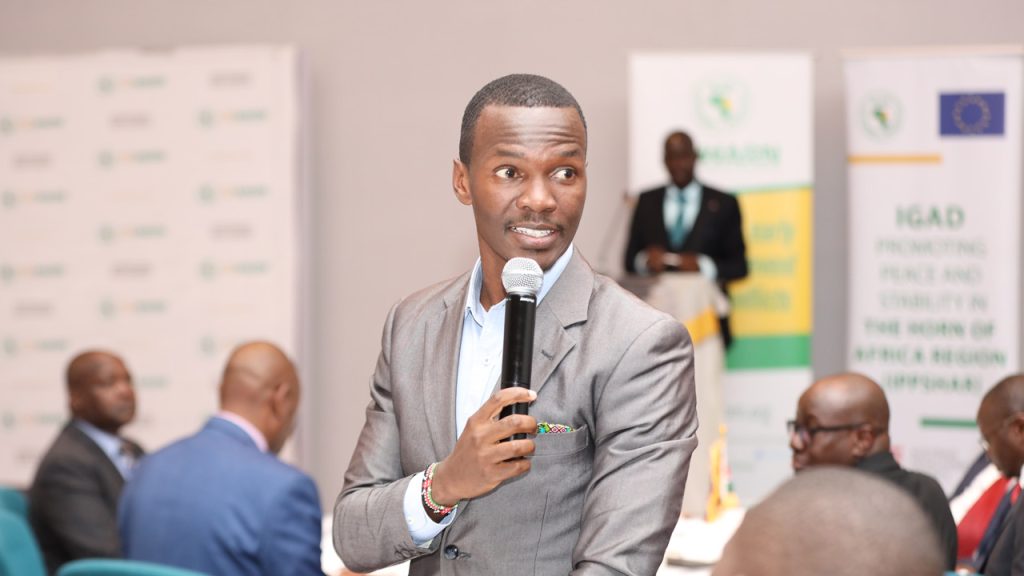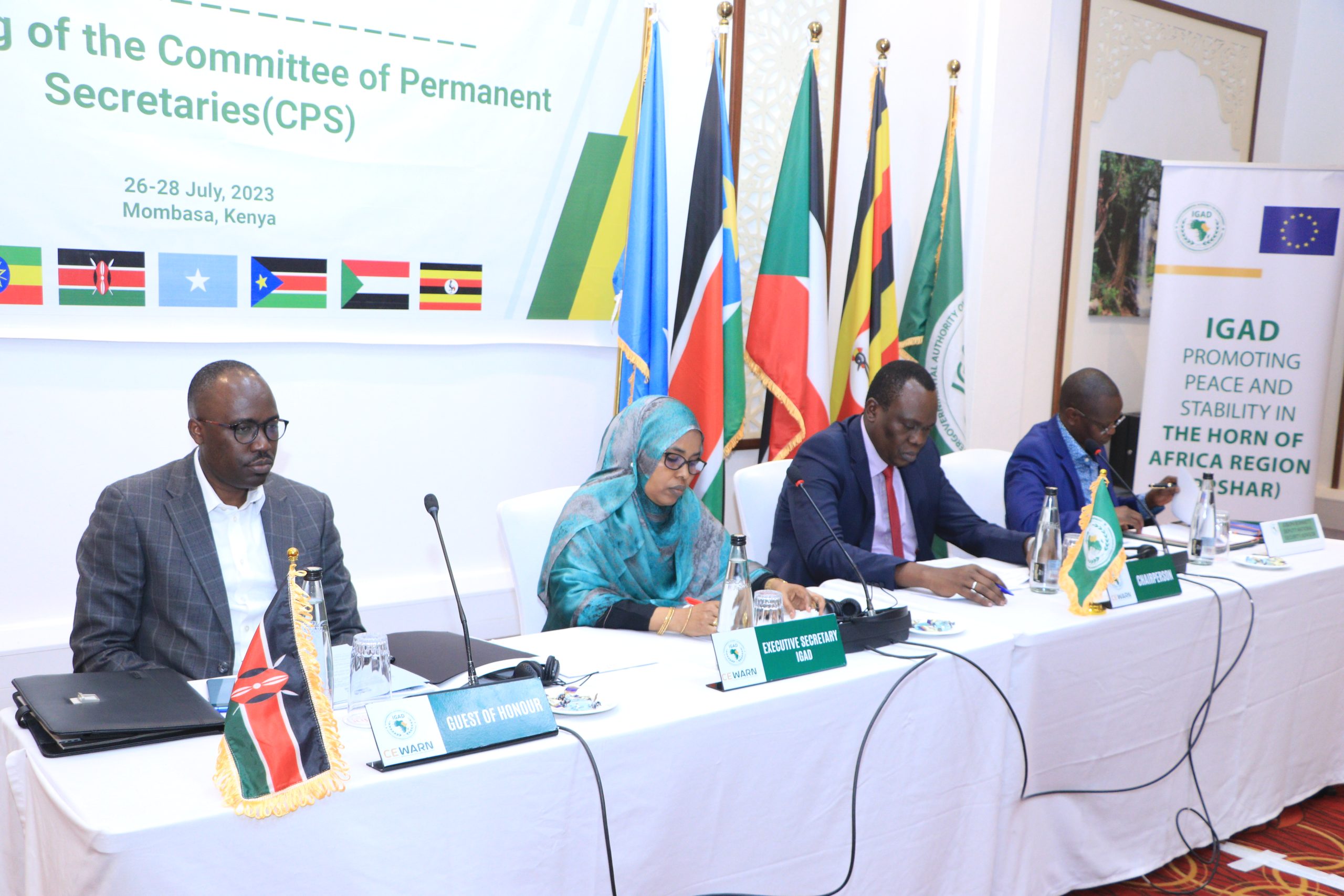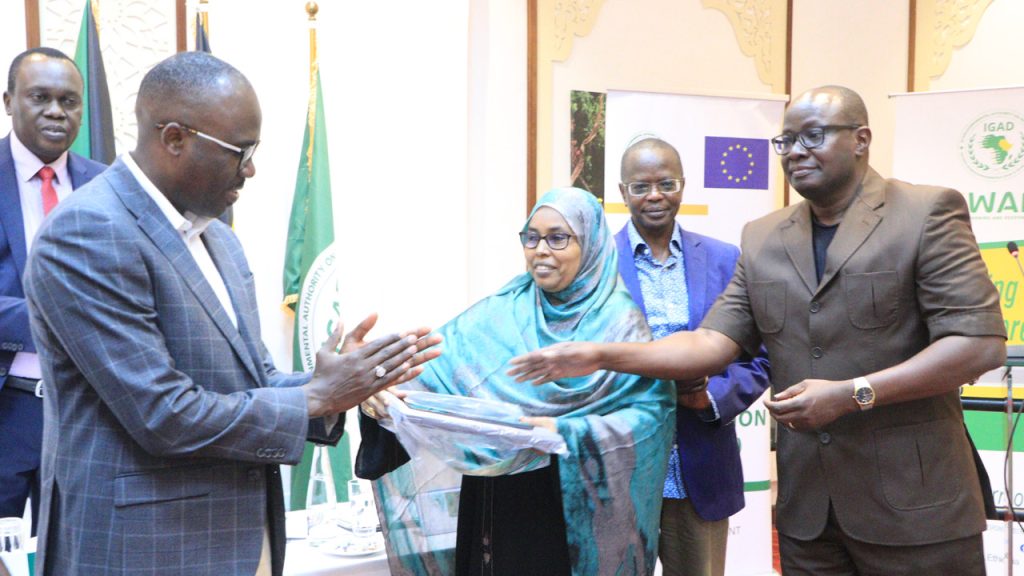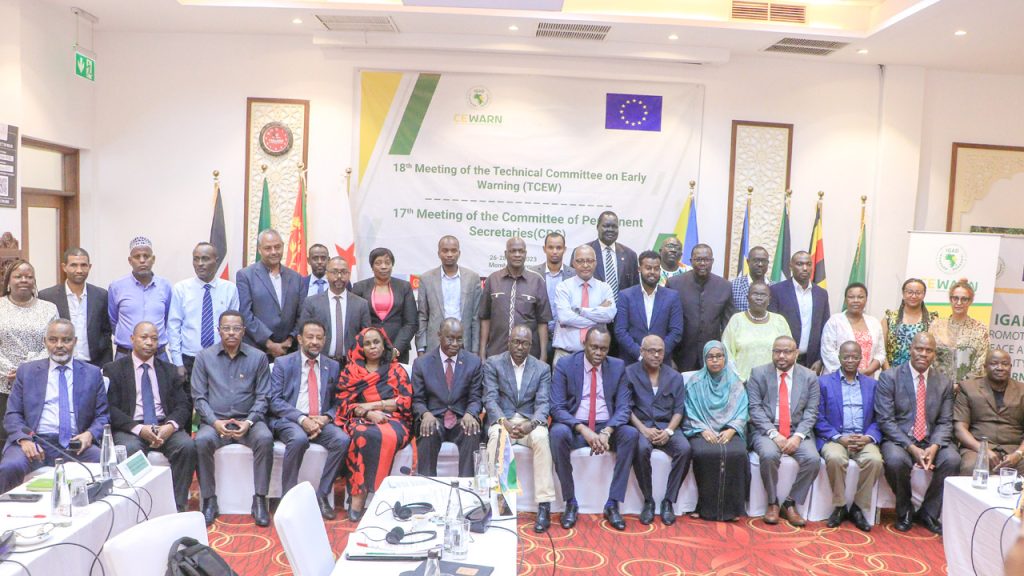Strengthening Climate-Conflict Response: New Early Warning Tools Under Review

From 13 to 15 May, CEWARN convened a pivotal regional workshop in Entebbe, Uganda, bringing together representatives from three pilot areas—Aweil in South Sudan, Mandera in Kenya, and Karamoja South in Uganda—alongside national conflict early warning units, representatives from the UN, AU, EAC, COMESA, and the Government of Ireland, a key partner in CEWARN’s climate-security work.
The workshop focused on reviewing innovative tools under development to strengthen early warning capacities for climate-related conflict in vulnerable border regions. These tools aim to generate timely, actionable insights into how climate stress—such as droughts, flash floods, and land degradation—can heighten tensions and spark violence.
Participants shared vivid accounts from the ground, highlighting how climate shocks are triggering displacement, competition over resources, and increased social strain. At the same time, they pointed to local strategies of resilience and voiced a strong demand for systems that can better anticipate and help prevent violent conflict.
Two tools under review play distinct yet complementary roles. The Climate-Conflict Events Scanning & Monitoring System, developed by Nairobi-based DataCraft, enables CEWARN to track large volumes of events data from multiple sources—including local media—to identify patterns and monitor evolving risks. On the other hand, the Climate-Conflict Early Warning & Predictive Tool, developed by Boston-based Virtual Research Associates (VRA), offers forward-looking insights into emerging threats. This second tool is continuously refined using the data and trends detected through the scanning system, creating a dynamic feedback loop for forecasting and prevention.
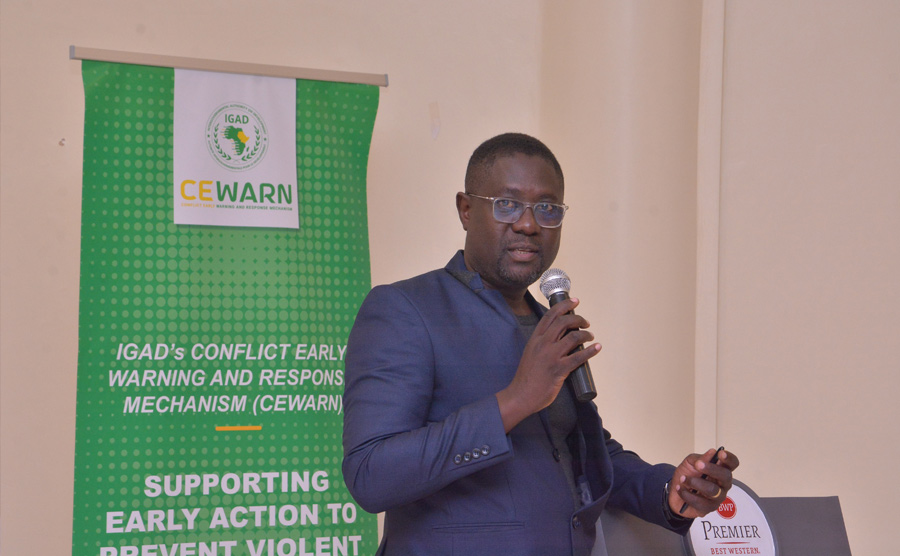
Discussions emphasized the need for simplicity, local adaptability, and usability. While indicators like vegetation health offer useful signals, participants stressed the importance of interpreting such data within broader local contexts—such as drought recovery, delayed rainfall, and pressure on shared resources. Historical tensions and past shocks also shape how climate stress leads to instability.
Participants also called for integrating traditional knowledge systems, improving the tools’ user interfaces, and ensuring they are responsive to the realities of vulnerable communities.
The insights gathered from this workshop will guide further refinement of the tools, helping shape a more responsive, grounded early warning system for the IGAD region—one that is capable of turning climate data into meaningful, peace-promoting action.
